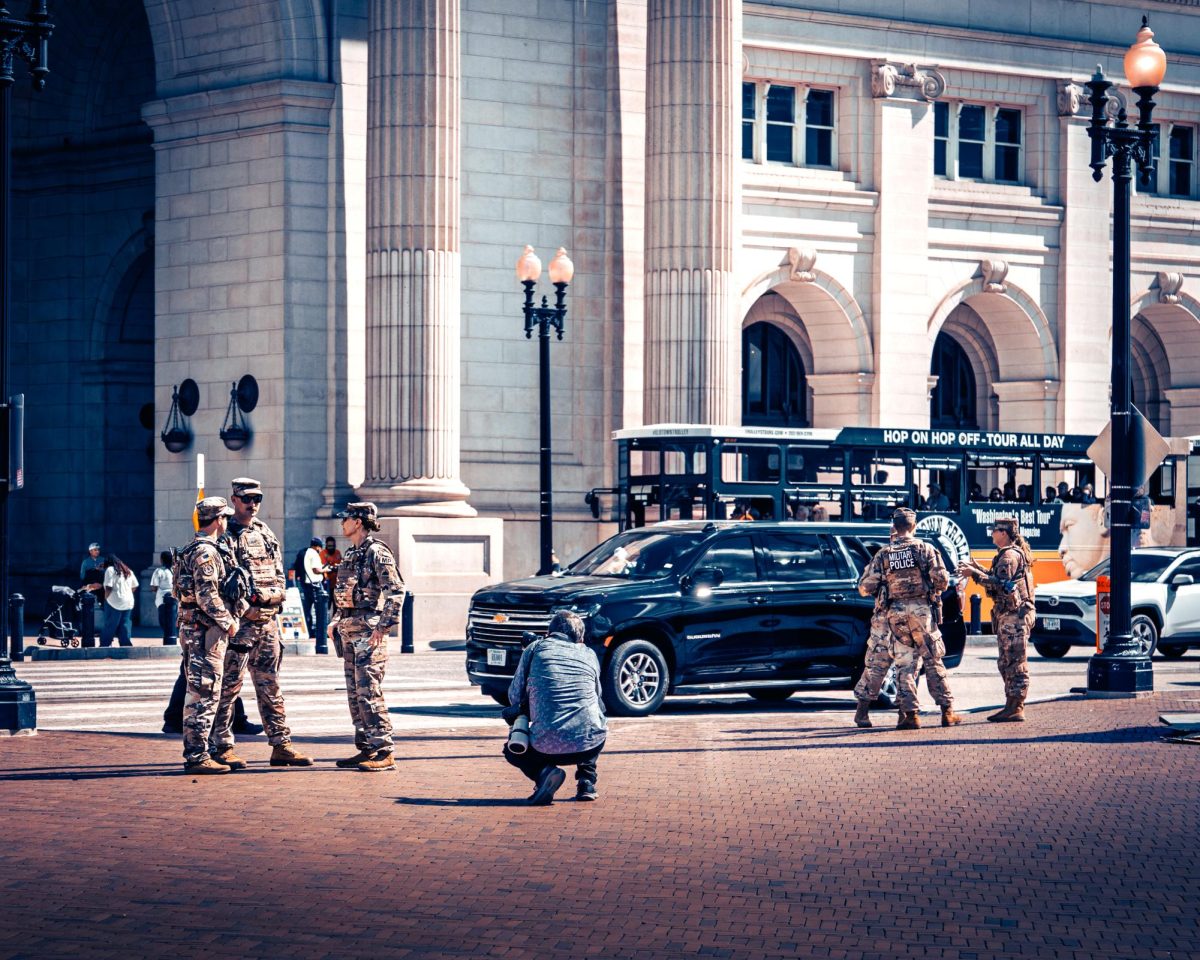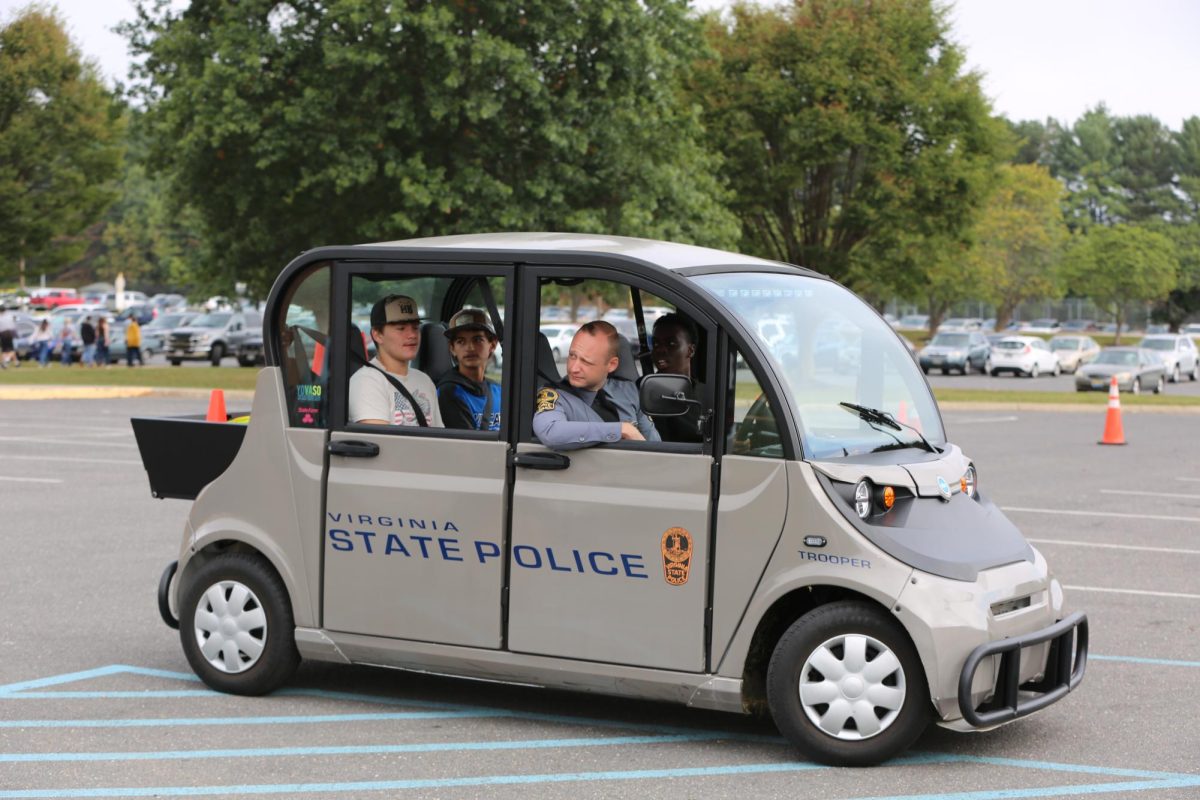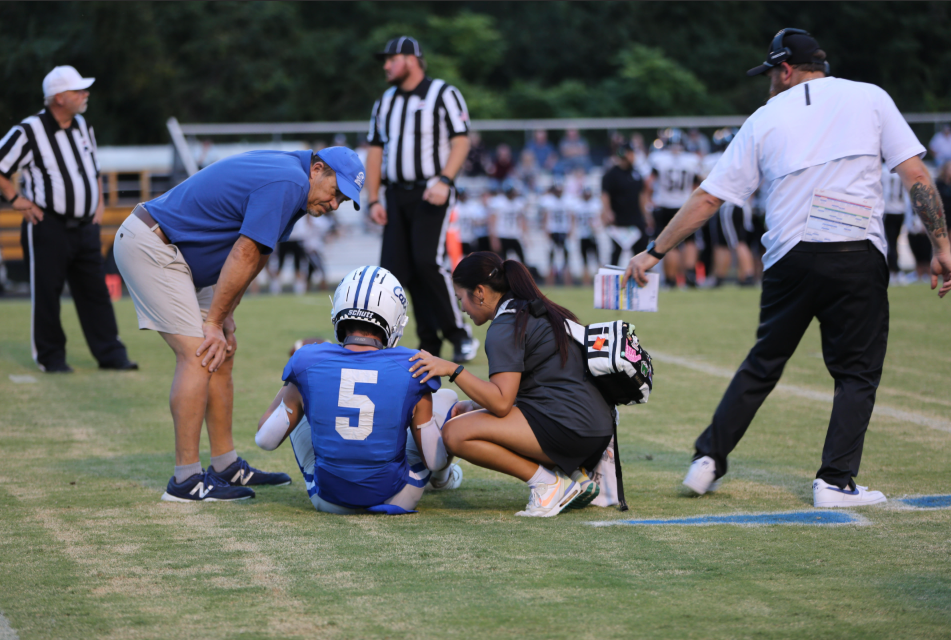On the evening of Sep. 6, chants of “Free D.C.! Free D.C.!” rang around our nation’s capital as protestors fought back against President Trump’s unprecedented move to federalize the city’s police force. The move comes to support his immigration policies and crack down on crime in D.C., with him vowing to do the same in other Democratic led cities across the nation. At the center of the issue is Section 740 of the 1973 District of Columbia Home Rule Act, which allows the president to direct the Metropolitan Police Department (MPD) for “federal purposes” if special emergency conditions exist. The act requires a mandatory 48-hour notice to congressional oversight committees and a 30-day limit unless Congress approves an extension.
On Aug. 11, Trump invoked this never-before-used authority, declaring the city in crisis due to “rampant crime” and calling it “Liberation Day” for D.C.. Trump’s executive order deployed federal agents and roughly 2,000 National Guard troops from multiple Republican-led states to assist the Metropolitan Police Department. While the presence of military personnel is striking, the power of the Guard is heavily restricted by the Posse Comitatus Act, which restricts federal troops from engaging in civil law enforcement.
Officials emphasized that the deployment was largely supportive, providing logistical assistance and taking over non-law-enforcement roles typically handled by police officers, such as guarding federal buildings, managing traffic, and staffing checkpoints. Even so, large numbers of National Guard personnel conducted visible, walking patrols throughout D.C., many carrying firearms, and all wearing tactical equipment, a clear show of force intended to deter crime and civil unrest. For many residents, the sight of soldiers patrolling through their neighborhood is intimidating, and continues to raise concerns about militarization of public spaces.
The backlash was immediate. D.C. Attorney General Brian Schwalb wasted no time filing a federal lawsuit, denouncing the takeover as an unlawful military occupation that violates both the Home Rule Act and the Posse Comitatus Act. Other federal courts have already ruled a similar deployment in Los Angeles as unconstitutional, and Schwalb argues that D.C.’s unique status doesn’t change the constitutionality of such deployments.
Mayor Muriel Bowser described the takeover as “unsettling and unprecedented,” She urged cooperation for public safety and even issued orders to manage coordination post-Sept. 10, when the 30-day federal authority was set to expire. At the same time, the public made their opposition clear.
A Washington Post poll found 80% of D.C. residents who were polled opposed the federalization, even as crime concerns eased–even though violent crime is reportedly near a 30-year low. The administration touted over 500 arrests in just 13 days, and Trump said the city had become a “crime-free zone.” Yet, independent analysis found violent crime was already dropping before federal agents arrived, and the arrests largely mirrored previous years, many for basic, lesser offenses, not the ‘violent crime’ that Trump claimed was epidemic.
As of Sep. 12, Trump told ‘Fox and Friends’ (Fox News) that he planned to send National Guard troops to Memphis, Tenn., calling the city “deeply troubled.”
“We’re going to fix that, just like we did Washington.” he said, adding that the federal government would, regardless of statutory restrictions, send the “National Guard and anybody else we need…We’ll bring in the military too if we need it.”
In the same Fox interview, Trump claimed Memphis’s Democratic mayor Paul Young was on board with the plan, as well as Tenn. Gov. Bill Lee (R), though the mayor’s office had not officially confirmed support for the deployment.
For now, Washington stands at a crossroads. Congress declined to extend Trump’s 30-day emergency authority, which expired on Sept. 10, technically returning full control of the MPD to local officials. Yet National Guard troops remain in the capital, as some state governments are slow to recall their deployments. Mayor Bowser has emphasized that the MPD will once again follow D.C. law, particularly regarding Immigration and Customs Enforcement (ICE), stressing, “Immigration enforcement is not what MPD does, and with the end of the emergency, it won’t be what MPD does.”
Trump fired back on Truth Social, threatening to federalize the city again if local officials refused to cooperate with ICE, “If I allowed this to happen, CRIME would come roaring back,” he wrote. “To the people and businesses of Washington, D.C., DON’T WORRY, I AM WITH YOU, AND WON’T ALLOW THIS TO HAPPEN. I’ll call a National Emergency, and Federalize, if necessary!!!”
With Trump already signaling plans to replicate this approach in Memphis and Chicago, Washington has become the test case for how far a president can stretch executive authority over local policing. D.C. may no longer be under a declared “crime emergency,” but the fight over who controls the capital, and whether this model spreads to other cities, appears to be far from over.








